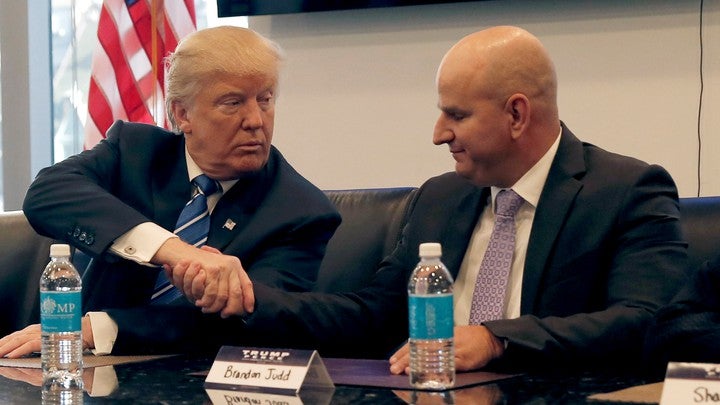U.S. to outfit border agents with body cameras in major oversight move
The cameras could offer new insight into the policing of the southern border, where migrant arrests have risen to 20-year highs in recent months

Your support helps us to tell the story
From reproductive rights to climate change to Big Tech, The Independent is on the ground when the story is developing. Whether it's investigating the financials of Elon Musk's pro-Trump PAC or producing our latest documentary, 'The A Word', which shines a light on the American women fighting for reproductive rights, we know how important it is to parse out the facts from the messaging.
At such a critical moment in US history, we need reporters on the ground. Your donation allows us to keep sending journalists to speak to both sides of the story.
The Independent is trusted by Americans across the entire political spectrum. And unlike many other quality news outlets, we choose not to lock Americans out of our reporting and analysis with paywalls. We believe quality journalism should be available to everyone, paid for by those who can afford it.
Your support makes all the difference.The United States will require thousands of border agents to wear body cameras, according to two officials and government documents, a major operational change that could increase oversight of agents and also help capture criminal activity.
The cameras are expected to be rolled out in parts of Texas and New Mexico during the summer and expanded to Arizona, California, Vermont and Texas’ busy Rio Grande Valley in the fall and winter, according to a recent government assessment of how the devices could impact privacy.
Pro-immigrant activists will likely welcome the increased oversight of an agency some have criticized for excessive use of force and institutional racism. But a union for border patrol agents also supports cameras, saying they could assist criminal investigations and help show that agents act professionally.
The American Civil Liberties Union and other groups have called on border patrol to use the cameras to improve accountability in the wake of several high-profile fatal shootings by law enforcement over the past decade.
Brandon Judd, president of the National Border Patrol Council, stressed that agents should have access to the footage, including when an agent is accused of wrongdoing.
“There’s no way to erase the footage, there’s no way to doctor the footage, so there’s no reason the agents shouldn’t have access,” he said in an interview.
Border Patrol’s parent agency, U.S. Customs and Border Protection (CBP), is the largest law enforcement agency in the United States, which presents a unique challenge for video footage collection and storage.
Recordings of illegal activity, use of force or agent misconduct could be used as evidence in investigations or prosecutions, the privacy assessment said.
The cameras could offer new insight into the policing of the southern border, where migrant arrests have risen to 20-year highs in recent months and encounters sometimes take place in remote areas.
In cases where footage could be used as evidence in a criminal case, it could be retained for up to 75 years, according to the privacy assessment. Footage that does not have value as evidence would be destroyed within 180 days.
After a bipartisan group of lawmakers spearheaded efforts to secure funding for bodycams, CBP awarded a $13 million contract to Axon Enterprises Inc in September 2020 to equip 3,800 border patrol agents with body cameras and to connect the cameras to a cloud-based storage system.
Axon declined to comment on the rollout. CBP did not immediately respond to a request for comment.
CBP conducted a small pilot of body cameras in 2015, but ultimately opted not to deploy them then.
An agency assessment at the time said the cameras would likely reduce the use of physical force on the job, but cited a number of reasons not to adopt the devices, including cost and agent morale.
Gil Kerlikowske, who was CBP commissioner at the time, said another consideration was that the cameras ”did not hold up particularly well” in the field, where they could be knocked off in the brush or mucked up with dust and dirt.
Body cameras have become more commonplace since the 2015 effort. The U.S. Department of Justice said in June that its agents would be required to wear cameras when serving search and arrest warrants.
Kerlikowske said many law enforcement officers support the idea, too.
“There are now police officers who wonât go on the street without their body camera,” he said. “They want that video image.”
Subscribe to Independent Premium to bookmark this article
Want to bookmark your favourite articles and stories to read or reference later? Start your Independent Premium subscription today.
Join our commenting forum
Join thought-provoking conversations, follow other Independent readers and see their replies
Comments